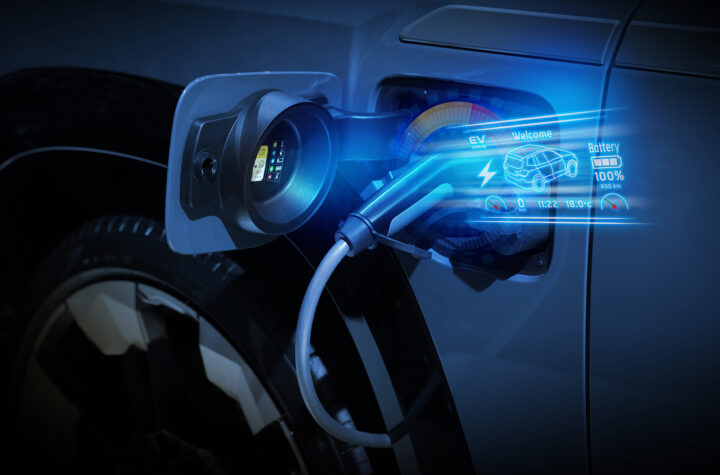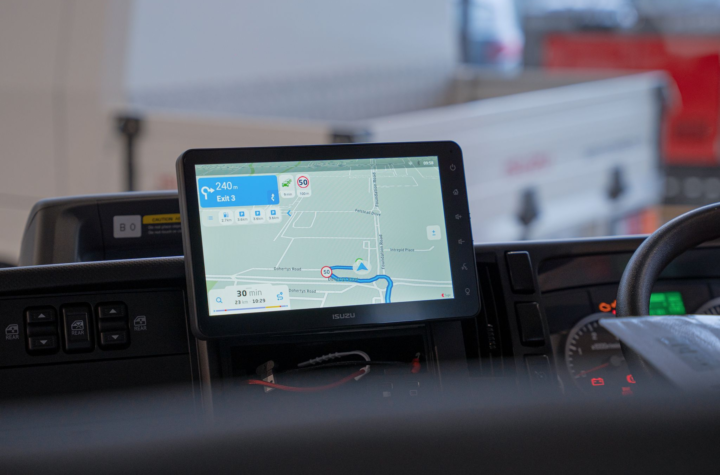
Morocco is on track to become a leading destination for automotive investments. The country’s automotive sector has witnessed a boom over the past five years. Recent investments in Morocco’s automotive sector include a one billion Euro investment by Renault. The French company is setting up a new plant which will produce 400,000 vehicles annually. The plant is expected to create around 36,000 direct and indirect jobs.
In a testimonial posted on the Moroccan Agency for Investment Promotion (AMDI) website, Renault says: “Having settled in Morocco for 80 years, Renault is the leader of the Moroccan car market with its brands Renault and Dacia. Already holder of a production unit in Casablanca (SOMACA), the Group launched in 2008 the construction works of a vast industrial complex in Tangier. The decision to install the Renault Project at Tanger Med in Morocco was based on several factors:
Prospects related to the automotive sector in Morocco with a rapid growing equipment rate and an attractive domestic market. The wide trade zone to which Morocco provides access because of its geographical proximity to several European and African countries and opportunities offered by the Agadir Agreement. Good infrastructure conditions through primarily the Tangier Med port and the dedication of space (13 hectares) to the exportation of Renault vehicles.
“Solid wage and fiscal competitiveness that allows Morocco to target the competitiveness levels of Romania. Support of public authorities and presence of a financial partner for the Renault Tanger Méditerranée Project (The Caisse de Depot et de Gestion contributes by up to 48% to Renault Tanger Med Project). And finally, the Free Zones in Tangier and Tetouan which facilitate the installation of vendors near the industrial complex.”
The Moroccan government has chalked out a strategy to further boost the industry. The plan includes attractive incentives such as a 5-year corporate tax exemption for automotive companies setting up shop in the country. Plus, the government offers aid worth up to 10% of the total investment to help automotive facilities set up. The government also has set in place training programs tailored to the needs of the automotive sector.
Morocco’s strategy as far as the automotive sector is concerned revolves around boosting investments from automotive suppliers who are looking to invest in low-cost countries. Plus, the country wants to establish itself as a manufacturer of specialty vehicles such as trucks, buses and coaches. AMDI is a leading force in promoting the automotive sector in the country. In March 2011, AMDI made a presentation to leading car-makers in France.
It told OEMs that Morocco has created integrated industrial areas which it calls platforms in Tangiers and Kenitra. These industrial integrated platforms are called P2i, and were created for automotive manufacturers. The P2i program helps automotive companies rent or buy real estate and buildings or get customized facilities in Tangiers and Kenitra. The logistics on offer include optimal connectivity to major ports, airports and highways.
The services offered under the P2i program include those that fall in the general infrastructure category such as helping set up infrastructure, maintenance, security etc. In addition, there are general services such as telecom, food, health services, banking and so forth. These areas also offer services such as business centers, recruitment agencies, travel agencies and so forth. Advanced services such as engineering, logistics, and recycling are also offered. The P2i program also offers training programs with specialized training institutes aimed at the automotive sector. The P2i program streamlines clearances by offering a One Stop Shop for automotive investors.
A few years back, Faurecia, Europe’s second-ranking automotive equipment supplier, invested 10-million Euro in Kenitra to set up an automotive seating trim cover production plant. The facility provides seat trim covers to Renault-Nissan and Volkswagen in Europe. At the time of the setting up the facility, Patrick Koller, then Faurecia’s executive vice president for automotive seating said: “With this new plant Faurecia is pursuing the deployment of its manufacturing footprint in a country where passenger vehicles are playing an increasingly important role in the national economy as well as in the daily lives of Moroccans. I am confident about the development of our new site in Kenitra and I would like to express my gratitude to the Moroccan government for the welcome they have given us and for their efficient support.” Earlier, in 2002, Delphi invested around US$4-million in Tangiers to boost the manufacture of automotive components in Morocco.
Automotive Industries (AI) asked Ahmed Fassi Fihri, investment promotion manager of AMDI, what makes Morocco an ideal destination for automotive manufacturers?
Fihri: First, Moroccan economic fundamentals have been strong over the last decade, with a GDP growth around 5%, a controlled inflation below 2% and a public debt reduced to 47% of GDP. Second, thanks to the numerous free trade agreements, Morocco allows duty free access to a market of one billion consumers – a market representing 60% of world GDP.
As far as auto industry is concerned, our proximity with the European market (less than 10 miles separating Morocco and Spain) allows access to a huge potential market within few days for equipment manufacturers: 4.2 million vehicles are produced less than three days away from Morocco.
Our value proposition is based on four pillars:
1- Infrastructure with two integrated industrial platforms with free zone status dedicated to the automotive sector.
2- Human resources and training support: creation of a Specialized Automotive Institutes with the participation of international automotive training, coupled with very attractive training incentive schemes adapted to the needs of the automotive sector players and their suppliers.
3- Attractive set of incentives: State subsidies of up to 20% of professional building costs and 10% of equipment costs for machinery investment exceeding 220,000 Euro, complete exemption from Corporate Tax for the first five years, and 8.75% for the following 20 years in the free zone.
4- Competitive platform for export due to competitive wages compared to Europe.
AI: Please explain AMDI’s strategy when trying to attract foreign investors to Morocco’s auto industry.
Fihri: Our strategy is centered around developing a good value proposition: world class infrastructure (industrial zones, free zones, Tangiers Med Sea Port, Highways…), competitive human resources, attractive set of incentives and duty-free access to one billion consumers. Then, promotion and communication are also crucial. For the first time this year, we launched a communication campaign in four European countries using television and specialized press (automotive among others). In parallel, AMDI regularly organizes conferences and road shows in our target markets to present our automotive value proposition to foreign investors. Our strategy is also based on the use of commercial agents, i.e. companies with strong knowledge of the auto industry and the target countries, which help us reach the auto manufacturers and present to them our value proposition.
AI: Tell us about the country’s free trade zones aimed at automotive manufacturers, and how successful they have been?
Fihri: Investors in free trade zones benefit from incentives ranging from complete exemption from the Corporate tax for the first five years (and 8.75% for the following 20 years), VAT exemption both on Imports & Exports, no taxes on dividends, no restriction in capital repatriation and convertibility, free transactions in foreign currencies and simplified custom procedures.
Two free trade zones are actually dedicated to the auto industry: Atlantic Free Zone in Kenitra and Tangier Automotive City in Tangier. These are still in the construction phase, and we expect the first hand over before the end of 2011. Commercialization has started and reached very promising levels: in Kenitra, more than 40 companies expressed interest; and in Tangiers, the Renault suppliers are definitely willing to invest and benefit from the free zone status.













More Stories
Reclaim 247 & Bott Co.’s Collaborative Mission to Rectify the £15 Billion Mis-sold Motor Finance Scandal in Automotive Industry
Navigating the Transformative Landscape of the Automotive Aftermarket – Automotive Industries interview with Yogesh P Punjabi, Managing Director at Capstone Partners
Saxony amps up its commitment to automobility